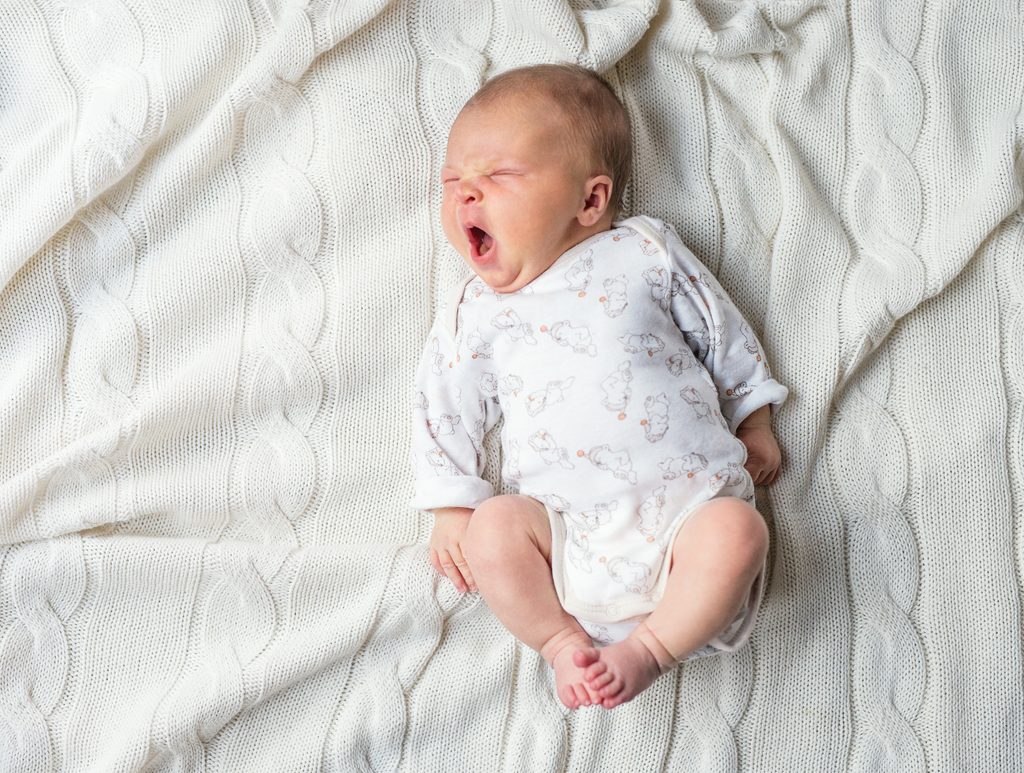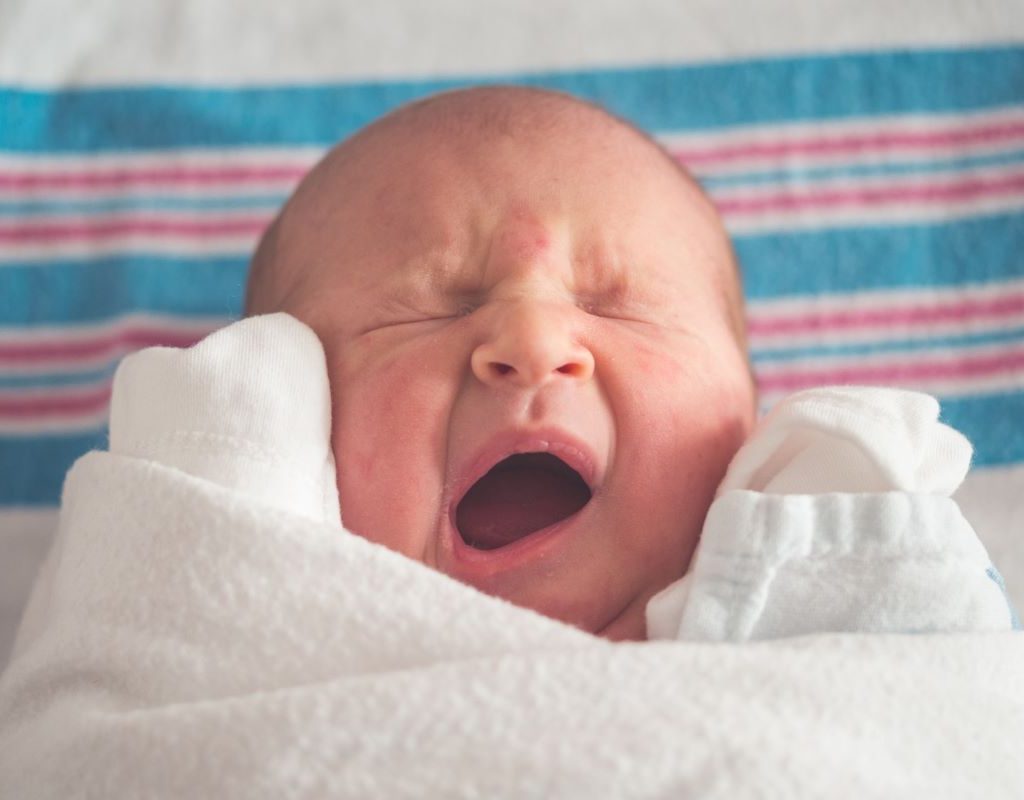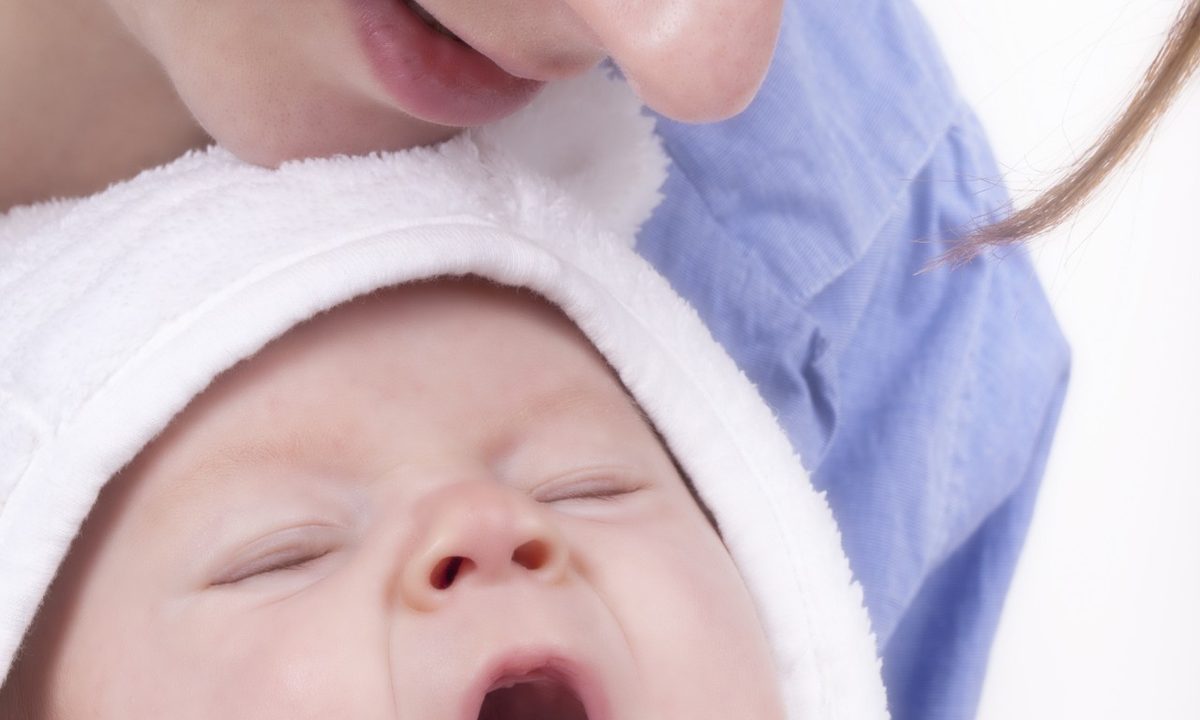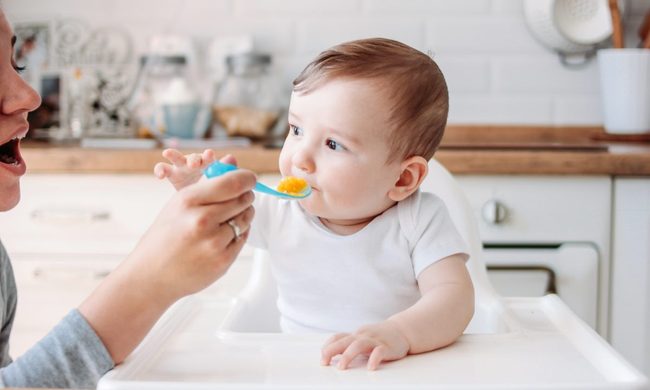There is nothing more adorable than watching a baby yawning and rubbing their tired eyes, until they start doing it so much you begin to wonder if something is wrong. We all know that babies yawn a lot in part because they sleep so much, but how much yawning is too much? Excessive yawning by babies and newborns could indicate a medical issue.
Yawning, in general, is a common phenomenon, but scientists and researchers still know very little about it and why it happens. Still, we know enough to tell you what excessive yawning in babies can indicate.
Is yawning normal for newborns?

Yawning is actually more frequent in newborns than in adults. Yawning is one of our earliest reflexes and has been observed in fetuses in the womb as early as the first trimester. A study published in 2010 showed that preterm babies yawned more frequently than babies born at term and that the amount they yawned decreased as they got older. Newborns not only yawn when fully awake and when drowsy, but can also yawn while asleep.
However, yawning so often that it makes you concerned could indicate something is up. There are certain problems excessive yawning can point to.
What does yawning in babies mean?

Just like in adults, the number one cause of yawning in babies is sleepiness. If they’re tired (and with sleeping more than half the day, aren’t they always?), they may yawn, and that’s perfectly fine. Boredom and drowsiness are highly associated with yawning, but interestingly enough, scientists actually know very little about yawning for how common it is.
Although yawning is a normal, common, and frequent reflex in babies, and isn’t worrisome in most cases, excessive yawning, especially when your baby doesn’t seem tired, can possibly be associated with some diseases.
The most common medical issues associated with increased yawning are sleep-related problems, including sleep deprivation, insomnia, sleep apnea, and narcolepsy. Not sleeping enough is a serious problem for a baby because they need sleep for their brain to develop properly. If this could be the case, see your pediatrician for a possible diagnosis and treatment. If they’re so exhausted when awake that they can’t stop yawning, it could mean they aren’t able to get quality sleep because of an issue like sleep apnea, which they can (and definitely should) be treated for.
Some other issues that may cause yawning include brain tumors, bleeding around the heart, heart attack, epilepsy, multiple sclerosis, liver failure, and stroke. Of course, the chances of excessive yawning indicating one of these serious conditions instead of being tired is small, but it is possible.
Remember, babies yawn more than adults, so their normal amount of yawning may seem excessive to you. As always, trust your gut and never hesitate to talk to your pediatrician if you’re concerned.
Does yawning mean the baby is tired?

Yawning is one of the indications that a baby is tired. Just like rubbing their eyes, it can be one of the possible cues, but it doesn’t have to happen before every sleep session. Yawning can also mean other things besides being tired.
When your baby yawns, it’s actually their attempt to stay awake, not fall asleep. Yawning is a reflex to wake us up when we’re tired by giving us a jolt of extra oxygen. Make sure there isn’t another medical problem, such as air quality in the room that’s causing your baby to need extra oxygen by trying to gasp for it with extra yawns if you’re noticing your baby yawning excessively.
Babies may also yawn when they feel overwhelmed, bored, or for other medical reasons, like trying to clear congestion in the ear. Try to encourage them to yawn if they need to “pop” their ears on an airplane or if there’s a changing altitude in another situation.
What is the 3-yawn rule?

Like the rest of us, babies will often yawn when they’re tired, and that can act as a cue to parents to indicate when their baby is ready for a nap. Sleep experts suggest using the 3-yawn rule to know when a yawn means your baby is tired, instead of something else.
If you wait for longer, there’s a chance your baby may become overtired, and naptime could become much more difficult at that point. Keeping an eye on your baby’s yawns, including how many times they yawn, is another good way to know when they’re ready to sleep.
What you can do

Like adults, babies often yawn due to tiredness or boredom, so make sure they’re getting enough sleep and napping if needed. If you notice your baby is yawning while playing or doing a regular activity, they \may simply be bored with it.
Try to encourage them to do something different, or switch up their regular activities. You may need to try a few different things to engage your baby to keep them interested, which may help eliminate those yawns that may be occuring due to boredom. You do want to ensure you’re not overstimulating your baby, as that can also cause them to yawn.
Whatever the reasons for your baby’s yawns, talk to a pediatrician if you’re worried. Remember, a baby yawning is usually just a common and normal reflex and indicates they are ready for their third nap of the day, as babies do. Enjoy those cute moments and make sure to snap some pics of them before they stop doing it so often as they get older.





